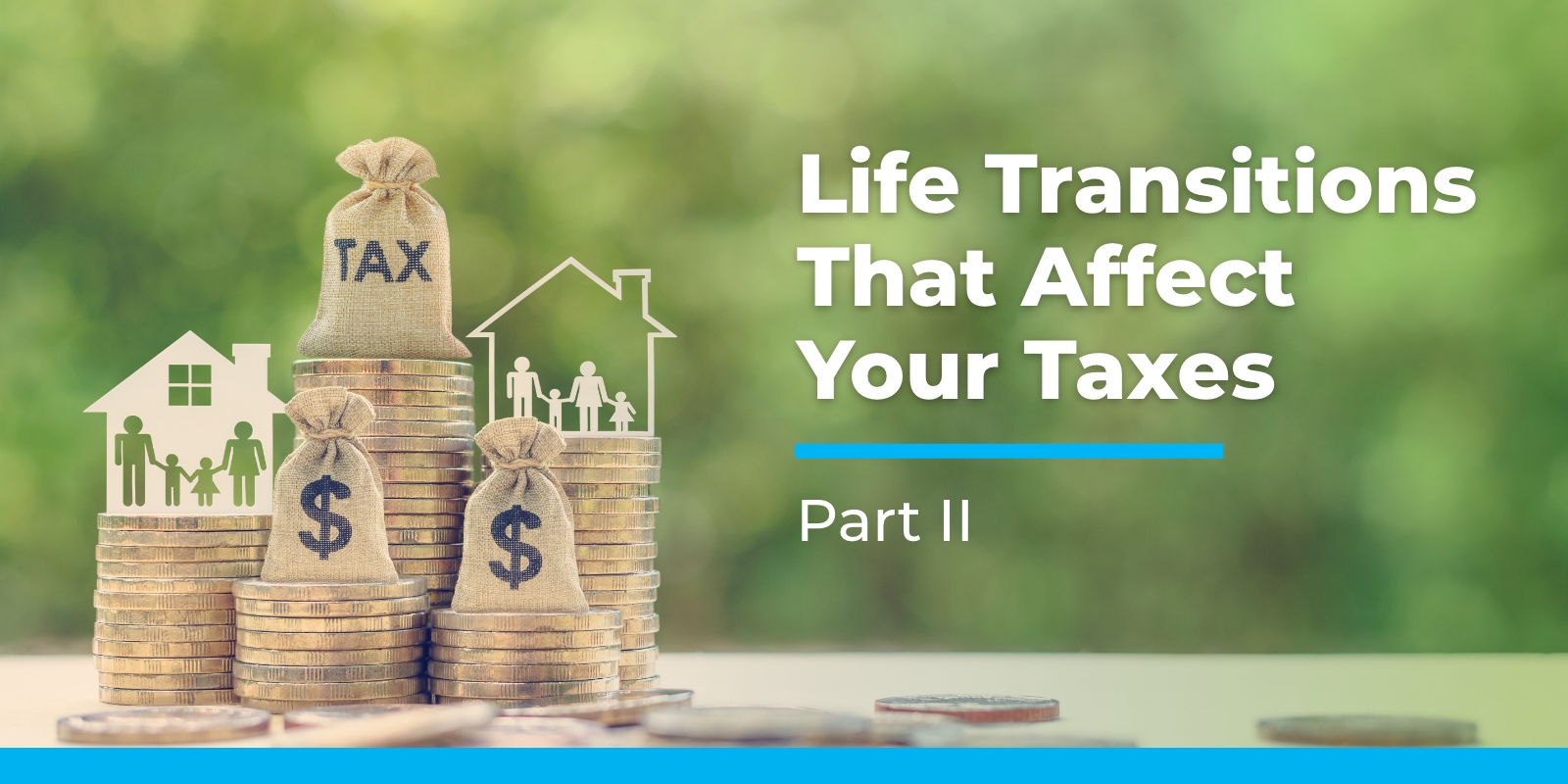
For the most part, our tax situation remains consistent year after year. However, every now and then there are certain life transitions that can dramatically change how you file your taxes, even if just for that year. Here, we will continue to review some of the most common life transitions that can affect your taxes.
Buying or Selling a Home
There are several tax benefits to becoming a homeowner. For example, homeowners can deduct expenses like mortgage interest, real estate taxes, mortgage points, and insurance premiums. In addition to these deductions, new homeowners can also take advantage of penalty-free IRA withdrawals used to pay for the down payment on their home purchase.
On the other hand, selling a home can mean turning profit, especially in a seller’s market. However, homeowners should stay mindful of capital gains taxes. Single filers who sell their home after owning and living in the house for at least two of the last five years before a sale can avoid paying taxes on the first $250,000 of profit from the sale. Married couples filing jointly in the same scenario can avoid paying taxes on the first $500,000 of the profit from the sale. Any excess profit will be subject to capital gains taxes, which can be a hefty and unplanned expense.
Accepting an Inheritance
If you receive an inheritance a loved one passes, you might wonder if any of it is taxable. In general, money inherited is not taxable. If you receive property, things are a little more complicated. You will receive the home at its fair market value determined on the date of inheritance. If you sell the property for more than the fair market value, you’ll be taxed on those gains only. If you inherit an IRA account, the rules of taxation vary depending on your relationship to the original account owner. Generally, you’ll likely be taxed on any distributions taken from the account.
Retiring
If you currently save for retirement, you might already know that you are eligible for certain tax breaks, like deducting contributions to your 401(k) or traditional IRA accounts. On the other hand, when it comes to taking distributions on these accounts, you will have to pay income tax on your withdrawals each year. You will not owe taxes on Roth IRA withdrawals since your contributions were made with after-tax dollars.
Dealing With Taxes After Death
Many taxpayers are unaware that after death, one final tax return will need to be filed in your name. If you’re married, your spouse will be able to file a joint return one last time. Your spouse, or other named representative, may even need to file an estate tax return, which summarizes the assets of the deceased.
Tax Help for All Life Transitions
You may not be at an age to begin worrying about how these life transitions could affect your taxes. However, being unprepared is what can lead to financial mishaps. So again, plan for the year ahead so you are not blindsided by a large tax bill in the future. Optima Tax Relief has a team of dedicated and experienced tax professionals with proven track records of success.
If You Need Tax Help, Contact Us Today for a Free Consultation